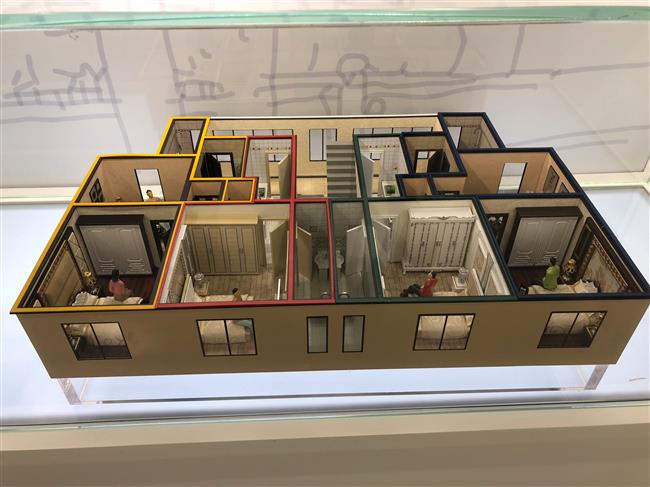Putuo pledges to refurbish old neighborhoods

A rendition of the original inner structure of a worker's community in Putuo. Residents share bathrooms and kitchens.
Putuo District has launched a new campaign to demolish illegal housing structures and overhaul old neighborhoods, including China's first batch of worker's communities.
This year, the district — which has many residential communities built between the 1950s and 1970s — has removed 80,000 square meters of unlicensed structures built by residents who had sought to expand their limited residential space.
The authorities aim to tear down illegal residential structures, which pose fire and safety risks, by the end of 2019.
Shanghai is expanding its citywide campaign to demolish rundown markets and illegal shops so as to improve the city’s safety and cleanliness.
Putuo District has demolished more than 1.4 million square meters of illegal housing structures and shops. They include the Tongchuan Road Fish Market, once the city's most popular seafood market. It will be replaced by a 215,000 square meter greenbelt in the historic Zhenru Town.
"The demolishing campaign aims to improve residents’ living environment with more detailed planning and management," said Yao Jun, director with the district's community management office, which oversees the campaign.
After removing illegal structures, the authorities will ensure that the height and color of walls, patios and windows will be uniform.
Law enforcement officers would keep an eye out for illegal buildings, Yao said.

A rendition of the inner structure after renovation of a worker's community in Putuo. Each household has its own bathroom and kitchen.
Most illegal structures were posing safety risks, occupying public space and infringing on neighborly relations, said Yao. Some were even leased to businesses or group rental tenants.
The district government has also pledged to renovate old residences to make it up to residents affected by the demolition campaign.
Putuo District has 51 residential communities in which residents share toilets and kitchens. They occupy 520,000 square meters of space. These are mainly workers' communities in Caoyang and Yichuan that were built in the 1950s to award outstanding workers.
"It was once a honor to live in the community, but it became a nightmare for people who are still sharing kitchens and toilets with neighbors," said Zhou Quanxiang, an official with the Caoyang Community Subdistrict.
To increase their residential space, some residents had built rooms without official permission.
Authorities have carried out renovations in the Caoyang Community, China's first for workers. Each household was given its own kitchen and toilets. Some residents were relocated to make room for the division of ensuite bathrooms for the remaining residents.
A total of 56 residential houses have been renovated, allowing 2,556 households to have their own kitchen and toilet.
Old apartments in Putuo District, covering some 100,000 square meters, will be renovated by 2020.
For residential buildings that lack additional space for separate kitchens and toilets, the district government will refurbish the shared kitchens and other public areas.
Such refurbishment projects can proceed only with the agreement of two-thirds of the affected residents. This solution is the second best outcome, according to Shao Jianwei, an official with the district's housing authority.















